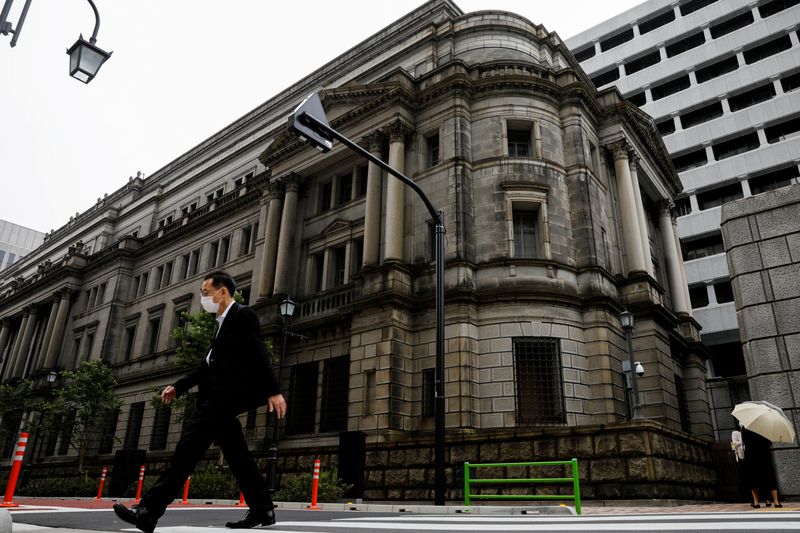By Leika Kihara
TOKYO (Reuters) -Japanese financial institutions have become more exposed to market risks triggered by non-bank and overseas funds, the central bank warned on Tuesday, in the wake of losses caused by the collapse of family office Archegos Capital Management.
Since the global financial crisis in 2018, Japan's financial sector has become increasingly linked to global market moves as foreign investment funds pile into the country and domestic banks invest more in overseas securities, the BOJ said.
That has increased overlaps in portfolios between domestic and foreign financial institutions, the central bank said in a semi-annual report analysing Japan's banking system.
"This suggests that the market risks Japanese financial institutions face can be amplified through trading activities of overseas investment funds and other entities more than before," the report said.
"Studies have shown that an investment fund holding more illiquid assets tend to face more pressure for redemption when market prices fluctuate, and that the degree of price impact by such a fund tends to be more significant," it said.
The collapse of Archegos, which defaulted on margin calls late last month and triggered a fire sale of stocks across Wall Street, has led to huge losses among some investment banks including Japan's Nomura Holdings (NYSE:NMR) Inc and the securities unit of Mitsubishi UFJ (NYSE:MUFG) Financial Group Inc.
While the BOJ made no direct mention of Archegos, the focus on overseas funds underscore its caution over the impact of their behaviour on domestic financial institutions.
The BOJ said Japan's banking system had sufficient buffers to weather the lingering battle with COVID-19, even as a renewed spike in infections stokes uncertainty about the outlook.

But it warned that banks must guard against potential risks such as rising credit costs, losses in securities holdings from abrupt market moves and dollar funding strains.
"Even after the pandemic subsides, financial institutions' profits will remain under pressure from low interest rates and structural factors," the report said.
